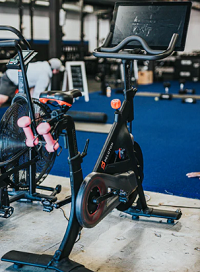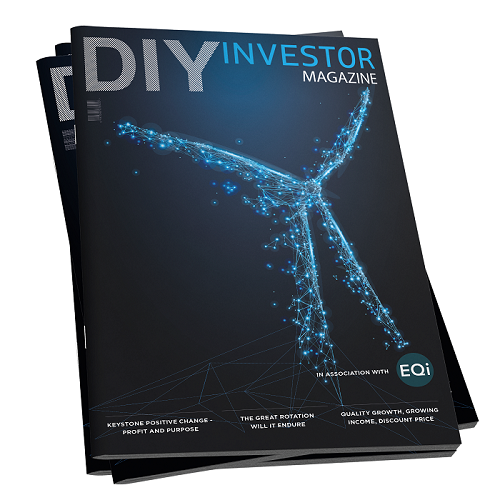Mar
2023
Someone Like You: Jemima Reeves explains why she’s become a young investor
DIY Investor
18 March 2023
One of the positive effects of the pandemic is that people took control of their financial futures as never before; brokers and investment platforms saw accounts being opened in record numbers with young people in particular to the fore. DIY Investor’s Hannah Barnaby meets a newbie investor with a long term plan.
Hannah Barnaby (HB) – Thank you for talking to us; what made you decide to join the growing number of young people investing for their future?
Jemima Reeves (JR) – Last year was supposed to be my gap year before uni – I’d planned to spend nine months in SE Asia, but obviously that was not possible. The money I’d saved to go travelling was safe, but I was earning very little on it, so with time on my hands I started looking at ways to achieve better returns.
HB – Was yours a household that discussed money issues?
JR – Not at all – I’ve worked for the last two summers at the local leisure centre, but had no idea about investing; to be honest, I’d not really thought beyond my trip until it was cancelled.
HB – So what changed?
JR – As much as anything I found myself watching the news, and in particular the way the pandemic was affecting companies – creating winners and losers. It was the first time I’d really taken any notice of the business news because all of a sudden it seemed relevant and logical.
HB – In what way?
 JR – I found myself thinking, OK so restrictions are going to damage sectors such as travel, restaurants and aviation but be good for online stores and home delivery companies; people may not be rushing to change their car, but they may get around to decorating the house. I became interested in a company called Peloton and could see how it might be a winner in the pandemic and may have even signed up if it hadn’t been so outrageously expensive!
JR – I found myself thinking, OK so restrictions are going to damage sectors such as travel, restaurants and aviation but be good for online stores and home delivery companies; people may not be rushing to change their car, but they may get around to decorating the house. I became interested in a company called Peloton and could see how it might be a winner in the pandemic and may have even signed up if it hadn’t been so outrageously expensive!
HB – So did you buy shares in Peloton?
JR – I didn’t – to be honest, I wouldn’t have known where to start, but it did get me interested enough to watch its share price.
HB – So what gave you the confidence to become an investor?
JR – I’d decided that I’d like to learn more about investing – as much as anything to find out if I was cut out to be an investor. I’d heard a lot about cryptocurrencies, and social media is full of people saying how much money they’d made and trying to sign you up. It made me think how hard I’d worked to earn the money I had and I knew that I did not want to lose it.
HB – But surely, by definition, any investment comes with risk?
JR – That’s true, but the more I learned the more I understood myself; I was comfortable that in order to have a chance to achieve better returns than on my savings I’d have to take some risk. I also knew that the share tips and get rich quick schemes on social media were not for me – I’m looking to grow my nest egg over a long period of time with relatively low levels of risk.
HB – GameStop made plenty of headlines and a lot of money for a lot of people; isn’t that an example of people collaborating on social media in a positive way?
JR – And a lot of people lost money as well – that is exactly why I would never follow the investing herd, and unless I was totally sure that I had all the facts and understood the potential risks I don’t think I would invest in individual companies. A lot of my friends trade shares on apps on their phones, but that is not what I want to do.
HB – So what did you do?
JR – I started by setting up a dummy account with an online broker which allows you to create a portfolio and ‘buy and sell’ investments but without putting real money in. It allows you to see historical prices and my first instinct was to beat myself up because I’d missed out on markets rebounding last year, but then I know I wouldn’t have invested if the market had just collapsed as a result of a global pandemic.
HB – But you’re happy to buy investments now that they are more expensive?
JR – One thing I learned is that over a long timeframe stock markets generally go up; when the Euros kicked off there was a lot of nostalgia for the England team that performed well in 1996. As well as learning who Gazza and the Spice Girls were I also found that the FTSE 100 was at 3,700 25 years ago, whereas today it sits at 7,160.
HB – And you’re now investing with real money?
JR – Yes, I recently opened a stocks and shares ISA account with £5,000, which is about half of the money I have, and have built a portfolio of investments to hopefully take advantage of some of what I believe will be important long term themes. I have invested in ETFs that give me the widest range of investments around the world.
HB – Are you solely investing in ETFs?
JR – I like ETFs because they include shares, bonds and other investments such as commodities and property; I’m wary of having all my eggs in one basket. However, I have also invested in some actively managed funds – investment trusts – that allow me to tap into the expertise they have in the themes I am interested in – particularly healthcare due to the pandemic.
HB – What other sectors have caught your eye?
 JR – I do worry a bit about the effects of Brexit; technology stocks have performed well in the past and I like seeing the latest inventions. I think it helps if you have an interest in the companies you are thinking of investing in; there’s something for everyone – I read about a fund the other day that invests in the space industry.
JR – I do worry a bit about the effects of Brexit; technology stocks have performed well in the past and I like seeing the latest inventions. I think it helps if you have an interest in the companies you are thinking of investing in; there’s something for everyone – I read about a fund the other day that invests in the space industry.
HB – Are you an ethical investor?
JR – In my experience, for most young investors, environmental issues and climate change are the number one priority. I want my investments to make a real difference and I believe that if I invest in companies that are developing sustainable fuel or carbon capture technology, the value of my investments will go up as they become successful. I don’t know anybody that would invest in oil and gas for example.
HB – What are your long-term financial goals?
JR – I’d not describe myself as a reluctant investor, but the pandemic gave me the opportunity to reassess my situation, and now that I’ve become an investor, I’m hooked. I don’t want to be a trader, I don’t want to spend hours in front of a screen and I don’t want to be kept awake at night. I don’t have a specific goal such as a retirement date or sum yet, but I do recognise that having a pot of money either as a rainy day fund or a pension pot gives me options – particularly when the country is so far in debt.
HB – And what about the bigger picture?
JR – The jury’s out to be honest. I’ve always wanted to be a lawyer, and that’s not changed but a lot of my friends that went straight on to uni have had an unsatisfying experience to say the least – remote learning and very little of the fun they would normally hope for. Having had the opportunity to be more hands on with money, I’m going to take some time to decide whether I want to take on a large amount of student debt, or whether I can find a way to study whilst being employed as a trainee – whilst building my nest egg of course!
HB – thank you very much for that and the very best of British with your investments.
JR – Thank you.
Commentary » Equities » Equities Commentary » Exchange traded products Commentary » Exchange traded products Latest » Fixed income Commentary » Investment trusts Commentary » Take control of your finances commentary

Leave a Reply
You must be logged in to post a comment.